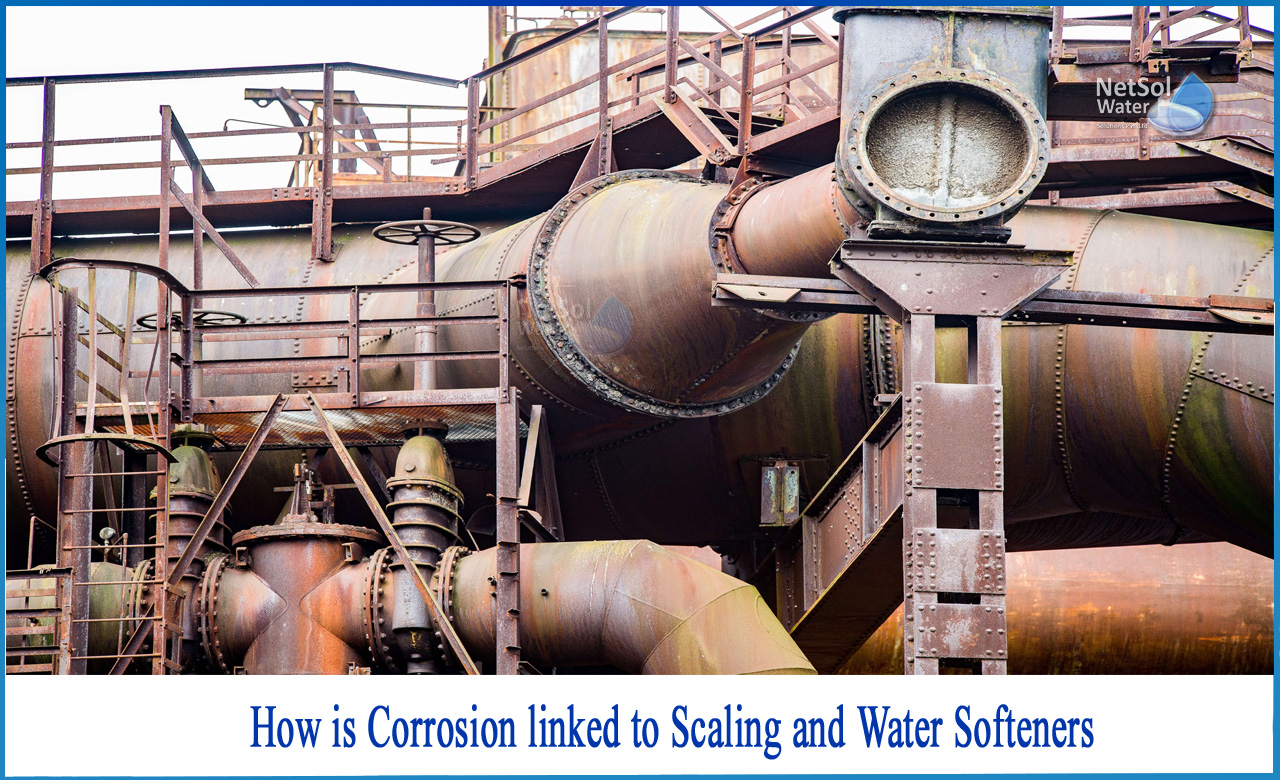How is Corrosion linked to Scaling and Water Softeners?
Corrosion is an electrochemical reaction that involves electron transport. Electrons accumulate in the negative end (the anode), whereas the positive end (the cathode) attracts electrons due to its positive charge.
Effects of Corrosion: Water Tuberculation
Damage to pipes, storage tanks, valves, and meters causes financial concerns. The most common type of pipe damage is leaks and a reduction in a pipeline carrying capacity. Treatment of Water Tuberculation, or the formation of rust mounds on the inside of the pipe, is a common cause of pipe corrosion. These mounds, like scaling, diminish the cross-sectional area of the pipe available to carry water. Furthermore, tubercles are frequently connected with pits in the pipe wall, which can extend the length of the pipe and create leaks.
When the pipes in the water treatment distribution system corrode, part of the metal from the pipes leaches into the drinking water, posing a health risk to the public.
When metal pipes corrode, the rust can break away and enter the water distribution system as red water, staining laundry and plumbing fixtures, and causing taste issues.
What is the relationship between corrosion and scaling?
Unstable water mostly causes issues in the distribution system.
Scaling is a concern because it forms on the interior of pipes, reducing the cross-sectional area accessible for water transport. Scaling can also build on equipment like hot water heaters, causing a variety of issues.
Conclusion
Scaling and corrosion in heat exchange pipes produce operational issues such as excessive power consumption, high chemical additive consumption to prevent foaming, and heat exchange pipe corrosion and damage.
Hard water is caused by the presence of extra minerals such as magnesium and calcium. Scaling, faulty plumbing, dry skin, galvanic corrosion, and brittle hair are all problems caused by hard water. This is why people in both homes and offices seek for the best Water Softening techniques and technologies. Water softening is the process of changing hard water into soft water. An ion-exchange mechanism replaces hard magnesium and calcium salts with sodium to complete the conversion.
Technical assistance and guidance
Netsol Water collaborates with a wide range of international organizations to tackle complicated problems of scaling by strategically integrating Water Softener treatment technology with practical solutions.
Netsol Water is Greater Noida-based leading water & wastewater treatment plant manufacturer. We are industry's most demanding company based on client review and work quality. We are known as best commercial RO plant manufacturers, industrial RO plant manufacturer, sewage treatment plant manufacturer, Water Softener Plant Manufacturers and effluent treatment plant manufacturers. Apart from this 24x7 customer support is our USP. Call on +91-9650608473, or write us at enquiry@netsolwater.com for any support, inquiry or product-purchase related query.



